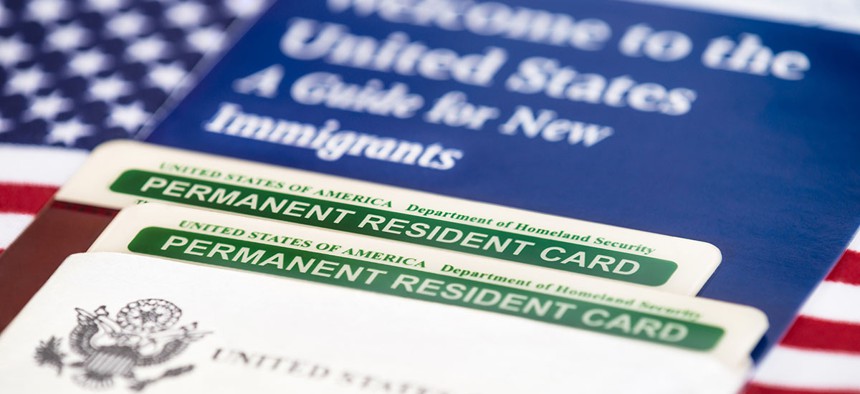Delays and Bugs in Immigrant Vetting System Trouble Lawmakers

Leena Robinson/Shutterstock.com
An upgraded IT system has been delayed for years and runs more than $1 billion over budget.
Shutdowns, delays and budget overruns in the information technology system the government’s immigration service uses could allow terrorists or criminals to mistakenly receive citizenship or green cards, lawmakers fretted Thursday.
The United States Citizenship and Immigration Services’ tech troubles date back to 2006 when the agency began a massive program to create an Electronic Immigration System, or ELIS.
That project, spearheaded by IBM, had stumbled miserably by 2012 when USCIS cut the project up into shorter time frames with smaller deliverables. Since then, the project has continued to suffer bugs and delays, the agency and its auditors testified before a House Homeland Security Committee panel.
» Get the best federal technology news and ideas delivered right to your inbox. Sign up here.
The program is currently scheduled to be fully deployed in early 2019 at a cost of roughly $3 billion, which is more than $1 billion over the original price tag, according to testimony from the Government Accountability Office.
Because of system bugs, shifts between manual and digital processing and other issues, USCIS erroneously issued about 20,000 green cards and granted citizenship to more than 800 people who had previously been ordered deported during the past six months, an auditor found.
“We’re talking about potential criminals and terrorists using this information to compromise our national security, so it’s no small matter,” subcommittee Chairman Scott Perry, R-Pa., said.
Much of the hearing focused on tangential issues related to President Donald Trump's plan to overhaul the U.S. immigration system.






